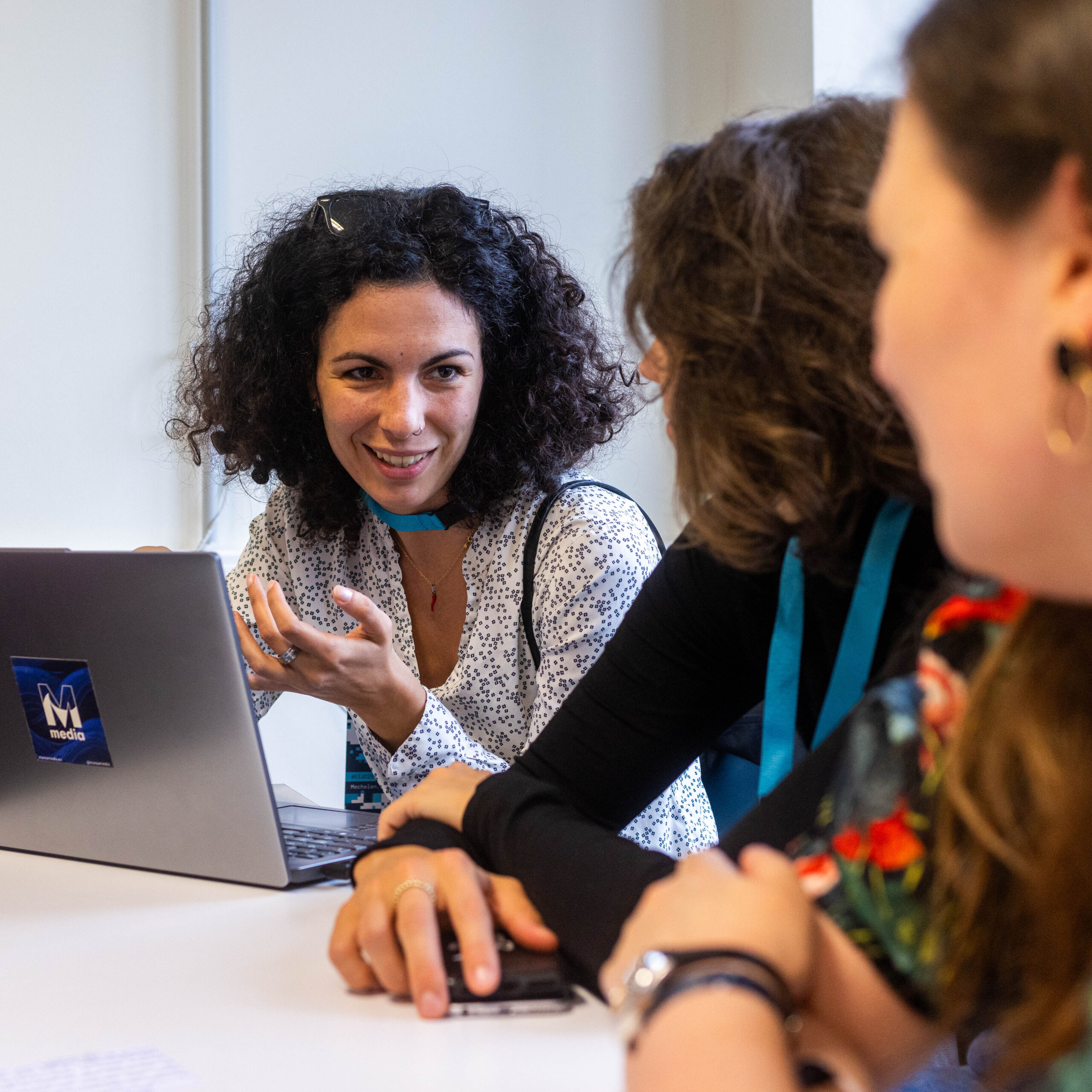Every year, we receive a great number of creative, high-quality pitches for the conference, and we build the conference programme in collaboration with our community.
The Dataharvest team is small but passionate. We are all first and foremost (working) journalists, and not professional conference organisers, embedded in the investigative, cross-border, and data journalism community in Europe. We aim to select the content that appeals to and is useful for the other members of the community. Thank you for sharing your ideas and helping us shape the conference! The call for proposals is now open. Send us your pitches via this FORM.
What are we looking for this year? Here are some pitching guidelines:
- Focus on methodology, not just content. Explain HOW you did something, not just WHAT you did. For example, rather than pitching “We exposed Russian smugglers”, pitch “How to track Russian weapon smugglers on Telegram”. Be concrete and instructive, so colleagues can learn from your experience. Session should show the methodology that others can replicate and learn from; not (only) highlight your results!
- Do you have a (nerdy) skill or know about a useful tool? We are interested! You can pitch a session/workshop on a specific OSINT skill, a visualization tool you want to showcase, or a dataset you put together that more journalists can benefit from. Even if your skill seems basic to you, others may still learn from it.
- Please be as detailed as possible. We can work together to develop your idea, but in your initial pitch, please explain your proposal beyond generic terms (for example, rather than saying “using OSINT tools when investigating conflict”, specify which tools and techniques you’re referring to). Describe what the audience will get from your session, and let us know what your particular expertise or connection to the topic is.
- Your climate and environment-related pitches are especially welcome! This year, Dataharvest is hosting the Climate Arena conference, dedicating a whole track to climate and environmental journalism and investigative skills.
- Think European: Dataharvest is the European investigative journalism conference (not just EU, but all the Council of Europe countries). Stories may take place outside of Europe, but must have a European connection. Unfortunately, we are unable to subsidise the travel of speakers coming from outside of Europe.
- However, we are also interested in your national and local angles if they offer wider relevance! These sessions are an “instant inspiration” for other journalists who might wish to explore similar work in their home countries. You can find some examples of “instant inspiration sessions” from last year here.
- Don’t be (too) academic. We rarely feature broad debates about the future of journalism, but we welcome sessions that present academic work or a dataset developed by scientists or civil society that journalists can work with. We are also interested in session ideas about collaborative research between journalists and scientists. Some examples from last year: Investigations coordinator – one title, multiple realities, or Public interest journalism – where does Europe go?
When it comes to the session types, we generally distinguish between:
Presentations involve one or two speakers presenting a specific methodology, dataset, or investigation (check out some of the examples from last year: Welcome to the Brussels bubble: tips on how to investigate the EU, or EU’s defence frenzy: where to find the data, or Unveiling the tracks behind Lebanon’s pager explosion).
Panels involve multiple speakers discussing a specific topic, dilemma, or methodology (e.g., Going behind traditional media and truly engaging with communities, or Mix and march: how to benefit from growing interdisciplinarity in our newsroom)
Hands-on sessions focus on teaching a specific skill(set), often (but not only) related to data journalism (e.g., How to find and use up-to-date beneficial ownership data to reveal the real owners of the companies, or Dataviz: make sure users understand your charts, or Find the spy tech: How to spot invasive technologies in public procurement)
Roundtables are group brainstorms about a pressing topic or a method (e.g., Independent tech infrastructure vs Big Tech? Old debate, new urgency and relevance, and Pathways to collaboration with scientists)
Generally, preference is given to presentations and hands-on sessions over panels; we are more interested in panels than big roundtables. Due to the budget limits, travel and accommodation support is usually available for one speaker from the same organisation per presentation, although exceptions can be made if speakers bring different expertise to the session. However, we are interested in all fresh, creative, and inspiring ideas, so send us your proposals, and we’ll figure out the logistics!

